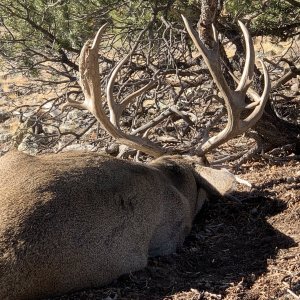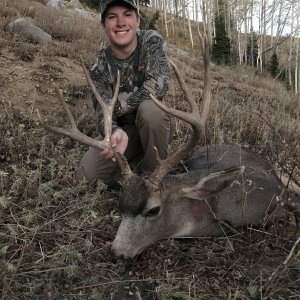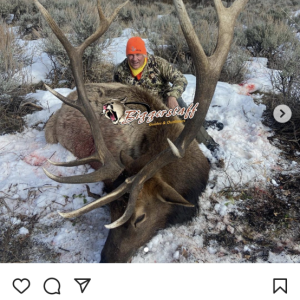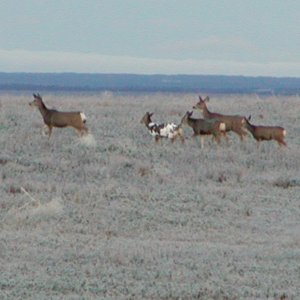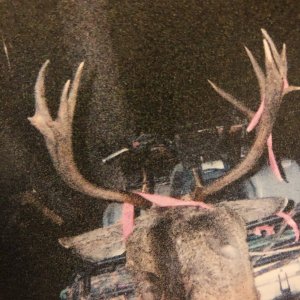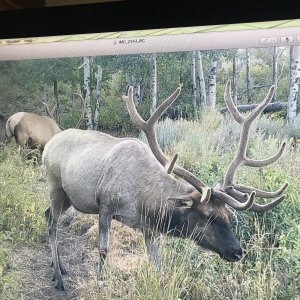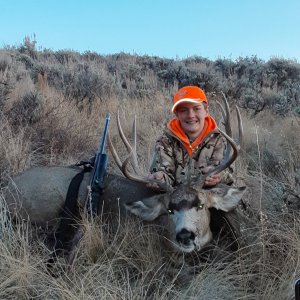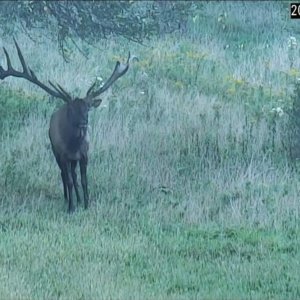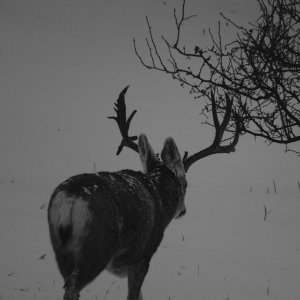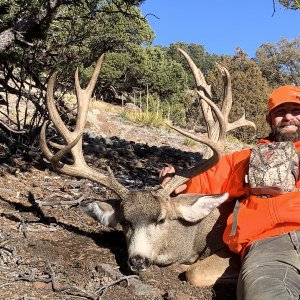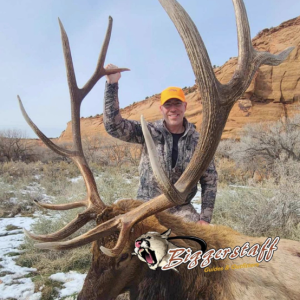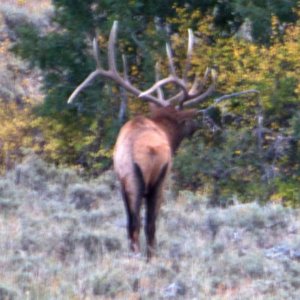A
AZBoy
Guest
LAST EDITED ON Jul-17-04 AT 08:37AM (MST)[p]
This may help with big picture.(this is how the subject sould read sorry for the misspelling)
I have been living under a rock or something as I didn't hear about all this until recently on this board. I started doing a little research and found information in various places on the internet. Most of this is by one author and is simply a cut/paste. It helped clear the water for me, maybe it will for someone else.
Details of the lawsuit
http://caselaw.lp.findlaw.com/data2/circs/9th/0017082p.pdf
Details/history from someone that has followed this closely.
The following is meant for everyone, and it might clear up some points on what has occurred with this suit.
This is a part of a column I wrote in Feb. 2003 -- BEFORE the AGFD appealed the case to the Supreme Court, which subsequently TURNED the appeal down. Thus, the 9th Circuit Court remanded the case back to the district judge, ORDERING him to follow its ruling. IOW, the judge who ruled this week had NO CHOICE in the matter; the 9th Circuit overturned the original district court ruling made here more than a year ago that actually backed the AGFD. -TONY
Copyright 2003 by Tony Mandile
Appeal Planned
It all started on Feb. 10, 1998 when Conservation Force, Inc. and several outfitters and guides from New Mexico filed suit in the United States District Court in Arizona against the members of the Arizona Game & Fish Commission who were in office at that time.
The plaintiffs, including United States Outfitters (USO) of Taos, N. Mex., claimed the 10-percent cap on nonresident permits for bull elk (statewide) and for deer north of the Colorado River (North Kaibab) violates the Commerce, Privileges and Immunities and Equal Protection clauses of the U.S. Constitution. They requested ?a declaration of invalidity as well as damages.?
When the case eventually came before the federal district court in Arizona, the judge granted the Arizona Game and Fish Department's (AGFD) cross-motion for summary judgment dismissing the commerce clause claim as a matter of law.
Subsequently, Conservation Force, Inc. dropped out, and the other plaintiffs-- Lawrence Montoya, Filberto Valerio and Carole Jean Taulman, wife of George Taulman who owns USO -- appealed the decision as individuals to take advantage of the commerce law. The case moved to the 9th District Court of Appeals in California.
It was argued and submitted in Dec., 2001. On August 20, 2002, the 9th District Court issued its opinion.
It pointed out that Arizona is home to what is considered by many hunters to be some of the best deer and elk hunting in the world, exemplified by the world-record animals harvested from its lands.
?The quality of the hunting in Arizona is in large part a result of the conservation efforts supported by Arizona citizens and administered by the Arizona Game and Fish Department,? the court files state.
It also states, ?In early 1990, the department conducted a poll of resident big-game hunters and found that nearly 75 percent favored restricting the number of hunting tags issued to nonresidents, many expressing the opinion that nonresidents should be excluded from hunting in Arizona entirely?.
For many years, Arizona distributed the limited hunt tags for antlered deer and bull elk through a lottery without regard to the residence of the applicant. In the late 1980s, however, the AGFD began to receive vocal complaints by Arizona hunters objecting to competition with nonresidents. Many felt that nonresidents were getting more than their fair share of the hunt opportunities, especially for premium hunts. To better meet the overwhelming desires of the resident hunting public, in 1991 the game commission amended Rule 12-4-114 of the Arizona Administrative Code. It placed a 10-percent cap on the number of tags that could be awarded to nonresidents for the hunting of bull elk throughout the state and for antlered deer in the area north of the Colorado River.
The AGFD explained that the continued management of Arizona?s big game ?is dependent on the continued support of Arizona residents? and that Arizona residents should be afforded the opportunity ?to hunt Arizona?s best.?
On the other side of the aisle, the plaintiffs, who are all professional guides who apply for hunting tags around the country for their clients, claimed that profit making is their sole purpose in hunting these animals in Arizona, and that they do not hunt for recreational enjoyment. Instead, they argued that they hunt to ?obtain the meat of the animals, their hide, their ivories, and especially their head and rack of antlers to profit from the sale and use of the non-edible parts.?
Judge Raymond C. Fisher of the 9th District Court wrote the following conclusion for the majority opinion:
?We hold that Arizona?s cap on nonresident hunting substantially affects and discriminates against interstate commerce and therefore is subject to strict scrutiny under the dormant Commerce Clause. Arizona has legitimate interests in regulating hunting to conserve its population of game and maintain recreational opportunities for its citizens. We remand for further proceedings to determine whether Arizona has met its burden of showing that it has no other means to advance its legitimate interests.?
In effect, the 9th Circuit Court overturned the Arizona court's decision, thus finding in favor of the plaintiffs. The rationale behind the decision involved the sale of elk and deer antlers, as allowed under state law in Arizona. In other words, the plaintiffs convinced the appeals court that their purpose for applying for permits was obtaining these antlers to sell and not for the recreational hunting provided.
The decision forced the AGFD to pick one of several options available:
? Dump the nonresident cap
? Outlaw the sale of deer & elk antlers by anyone
? Raise the cost of nonresident permits high enough for a de facto cap
? Appeal the decision to the U. S. Supreme Court
The Arizona Game and Fish Commission voted unanimously last October to choose door #4 ? an appeal to the Supreme Court, which will have the option to hear the case and rule or simply decline hearing it altogether.
On almost the same day the game commission voted for the appeal, U.S. Attorney Paul K. Charlton?s office in Phoenix indicted two individuals on charges stemming from an investigation known "Operation Navajo Buck (ONB)." One of them happens to be George Taulman, owner of USO.
Conducted during 1998 and 1999, the ONB investigation led to the arrest and conviction of several big-game guides based in Utah, Arizona, and New Mexico. They unlawfully used aircraft prior to and during hunting seasons to locate deer and elk for hunting clients on the Navajo Indian Reservation in northeast Arizona. As a result, 12 individuals have paid fines of $85,000 and have forfeited one aircraft and unlawfully taken wildlife.
Taulman?s indictment charges him with one felony violation of the Lacey Act, two felony violations of conspiracy to violate the Lacey Act, and two misdemeanor violations of the Airborne Hunting Act.
The felony violation of the Lacey Act alleges one of Taulman?s clients killed an elk with the aid of an aircraft in 1999. The felony conspiracy counts allege that Taulman conspired to use aircraft to aid hunting clients in the taking of elk in Arizona during 1998 and 1999. Taulman?s business, USO, is also under indictment on three felony counts related to the 1998 and 1999 hunts. The indictment also seeks the forfeiture of the outfitter?s Cessna 182 aircraft, which he allegedly used during the hunts.
Another indictment cited David Holton III, of Lake Montezuma, Ariz., who is listed as an employee of USO. He is charged with one felony violation of the Lacey Act, one felony violation of conspiracy to violate the Lacey Act, and one misdemeanor violation of the Airborne Hunting Act. All violations relate to aiding a client with an aircraft so he could kill an elk in 1998 near Payson, Ariz.
The federal Lacey Act makes it unlawful to transport, sell, receive, acquire or purchase wildlife which was taken, transported, possessed, or sold in violation of state, federal, or indian tribal laws or regulations. Violations carry maximum fines of up to $250,000 for a person, $500,000 for a corporation, and up to five years in prison. All vehicles and aircraft used in violation of the Lacey Act are subject to forfeiture.
The federal Airborne Hunting Act makes it unlawful to shoot animals from an aircraft or to harass animals with an aircraft. The Airborne Hunting Act Regulations prohibits a person, while on the ground, from taking or attempting to take wildlife by means, aid, or use of an aircraft. Maximum penalty for violations of the Airborne Hunting Act include fines of up to $100,000 for a person, and $200,000 for a corporation, and one year in prison.
Here's the squence that occurred.
Several Plaintiffs file suit against Shroufe and the AZ game commission
Federal district judge (AZ) rules in favor of AGFD (Shroufe)
USO and other plaintiffs appeal to the 9th Circuit Court (CA based)
9th overturns AZ district court, citing the Commerce Clause and remands it back to AZ district court
AGFD appeals the 9th CC's ruling to the Supreme Court
SC refuses to hear it, thus the 9th CC's ruling stands
AZ District court overturns the ORIGINAL ruling that went in favor of the AGFD (this week's action)
Latest update:
State asks court permission to continue current hunt draw process
PHOENIX ? The Arizona Game and Fish Commission is asking a federal court to allow it to continue the fall hunt permit drawing?with the nonresident cap intact.
At a public meeting of the commission today, Assistant Attorney General Jim Odenkirk informed the public that the Game and Fish Department has filed a motion for temporary relief from a court order imposed July 13. That order, by U.S. District Judge Robert Broomfield, declared Arizona?s 10 percent cap on nonresident hunt permits unconstitutional and directed the department to refrain from enforcing the cap.
In the midst of the commission meeting, Broomfield?s office responded to the motion by scheduling a teleconference with plaintiffs? and department attorneys the morning of July 19. The teleconference will be held at 10 a.m.
Following the teleconference, the Game and Fish Commission will hold another public meeting to take further action. The commission meeting will be held at noon, Monday, July 19, at the Wildlife Building on the Arizona State Fairgrounds, 1826 W. McDowell Rd.
The motion for temporary relief asks the judge to allow the department to finish the fall hunt draw already begun. In the motion, Odenkirk calls the judge?s injunction ?an extraordinary circumstance that will lead to unexpected hardship? and says the department had almost completed the process of issuing hunt permits. The motion also says the order jeopardizes the department's ability to issue permits before the first hunt on Aug. 6.
Meantime, the commission has ordered the department to release the names of applicants who have been drawn for species not affected by the court ruling: buffalo, bighorn sheep, turkey and antelope. That information will be released by 5 p.m. on July 20.
The court ruling directly affects those hunters who applied for a bull elk permit or who applied for a permit to hunt antlered deer in Hunt Units 12A, 12B, 13A and 13B (north of the Colorado River), and delays draw results for all deer and elk hunt applicants.
More than 270,000 people applied for big game permits for the fall hunt.
More than 120 of those applicants turned out for today?s Game and Fish Commission meeting, many of them to implore the commission and the department to find new ways to protect residents? opportunities to hunt.
Game and Fish Director Duane Shroufe says they intend to do just that.
?This court decision does not mean that the department will abandon its efforts to maintain the highest possible level of resident hunting opportunity,? he says.
The department's deputy director, Steve Ferrell, says it's critical that Arizonans have a fair opportunity to benefit from, and protect, the state?s wildlife resources.
?We are very disappointed with the ruling,? says Ferrell. ?We believe that maintaining resident opportunity is the best way to support conservation. Engaged residents are crucial in the support of wildlife management, by way of volunteerism, guardianship, and by financial and political means. Anything that diminishes resident interest in their wildlife resources ultimately threatens the support Arizona residents are uniquely positioned to provide.?
Montoya vs. Shroufe began in 2000, when Lawrence Montoya, a self-described professional hunter from New Mexico who also runs a guide service, sued the Game and Fish Department claiming that Commission Rule 12-4-114E, which established the 10 percent cap on nonresident hunt permits, violated the Commerce Clause of the U.S. Constitution.
In the July 13 ruling, Judge Broomfield agreed and said it was up to the state to demonstrate the cap was the least discriminatory means available to protect its interests, which the judge said the state failed to do.
However, Broomfield also left the door open for the Game and Fish Department to find another method. Citing an earlier decision by the Ninth Circuit Court of Appeals, Broomfield said that ?Arizona has complete freedom to craft a rule which adequately serves its legitimate interests so long as it does not violate the Constitution.?
The Game and Fish Commission will discuss long-term options at a meeting to be held in Flagstaff, Aug. 13-14.
The department will keep hunters informed about the situation by posting news about the fall draw on its Web site, azgfd.com.
This may help with big picture.(this is how the subject sould read sorry for the misspelling)
I have been living under a rock or something as I didn't hear about all this until recently on this board. I started doing a little research and found information in various places on the internet. Most of this is by one author and is simply a cut/paste. It helped clear the water for me, maybe it will for someone else.
Details of the lawsuit
http://caselaw.lp.findlaw.com/data2/circs/9th/0017082p.pdf
Details/history from someone that has followed this closely.
The following is meant for everyone, and it might clear up some points on what has occurred with this suit.
This is a part of a column I wrote in Feb. 2003 -- BEFORE the AGFD appealed the case to the Supreme Court, which subsequently TURNED the appeal down. Thus, the 9th Circuit Court remanded the case back to the district judge, ORDERING him to follow its ruling. IOW, the judge who ruled this week had NO CHOICE in the matter; the 9th Circuit overturned the original district court ruling made here more than a year ago that actually backed the AGFD. -TONY
Copyright 2003 by Tony Mandile
Appeal Planned
It all started on Feb. 10, 1998 when Conservation Force, Inc. and several outfitters and guides from New Mexico filed suit in the United States District Court in Arizona against the members of the Arizona Game & Fish Commission who were in office at that time.
The plaintiffs, including United States Outfitters (USO) of Taos, N. Mex., claimed the 10-percent cap on nonresident permits for bull elk (statewide) and for deer north of the Colorado River (North Kaibab) violates the Commerce, Privileges and Immunities and Equal Protection clauses of the U.S. Constitution. They requested ?a declaration of invalidity as well as damages.?
When the case eventually came before the federal district court in Arizona, the judge granted the Arizona Game and Fish Department's (AGFD) cross-motion for summary judgment dismissing the commerce clause claim as a matter of law.
Subsequently, Conservation Force, Inc. dropped out, and the other plaintiffs-- Lawrence Montoya, Filberto Valerio and Carole Jean Taulman, wife of George Taulman who owns USO -- appealed the decision as individuals to take advantage of the commerce law. The case moved to the 9th District Court of Appeals in California.
It was argued and submitted in Dec., 2001. On August 20, 2002, the 9th District Court issued its opinion.
It pointed out that Arizona is home to what is considered by many hunters to be some of the best deer and elk hunting in the world, exemplified by the world-record animals harvested from its lands.
?The quality of the hunting in Arizona is in large part a result of the conservation efforts supported by Arizona citizens and administered by the Arizona Game and Fish Department,? the court files state.
It also states, ?In early 1990, the department conducted a poll of resident big-game hunters and found that nearly 75 percent favored restricting the number of hunting tags issued to nonresidents, many expressing the opinion that nonresidents should be excluded from hunting in Arizona entirely?.
For many years, Arizona distributed the limited hunt tags for antlered deer and bull elk through a lottery without regard to the residence of the applicant. In the late 1980s, however, the AGFD began to receive vocal complaints by Arizona hunters objecting to competition with nonresidents. Many felt that nonresidents were getting more than their fair share of the hunt opportunities, especially for premium hunts. To better meet the overwhelming desires of the resident hunting public, in 1991 the game commission amended Rule 12-4-114 of the Arizona Administrative Code. It placed a 10-percent cap on the number of tags that could be awarded to nonresidents for the hunting of bull elk throughout the state and for antlered deer in the area north of the Colorado River.
The AGFD explained that the continued management of Arizona?s big game ?is dependent on the continued support of Arizona residents? and that Arizona residents should be afforded the opportunity ?to hunt Arizona?s best.?
On the other side of the aisle, the plaintiffs, who are all professional guides who apply for hunting tags around the country for their clients, claimed that profit making is their sole purpose in hunting these animals in Arizona, and that they do not hunt for recreational enjoyment. Instead, they argued that they hunt to ?obtain the meat of the animals, their hide, their ivories, and especially their head and rack of antlers to profit from the sale and use of the non-edible parts.?
Judge Raymond C. Fisher of the 9th District Court wrote the following conclusion for the majority opinion:
?We hold that Arizona?s cap on nonresident hunting substantially affects and discriminates against interstate commerce and therefore is subject to strict scrutiny under the dormant Commerce Clause. Arizona has legitimate interests in regulating hunting to conserve its population of game and maintain recreational opportunities for its citizens. We remand for further proceedings to determine whether Arizona has met its burden of showing that it has no other means to advance its legitimate interests.?
In effect, the 9th Circuit Court overturned the Arizona court's decision, thus finding in favor of the plaintiffs. The rationale behind the decision involved the sale of elk and deer antlers, as allowed under state law in Arizona. In other words, the plaintiffs convinced the appeals court that their purpose for applying for permits was obtaining these antlers to sell and not for the recreational hunting provided.
The decision forced the AGFD to pick one of several options available:
? Dump the nonresident cap
? Outlaw the sale of deer & elk antlers by anyone
? Raise the cost of nonresident permits high enough for a de facto cap
? Appeal the decision to the U. S. Supreme Court
The Arizona Game and Fish Commission voted unanimously last October to choose door #4 ? an appeal to the Supreme Court, which will have the option to hear the case and rule or simply decline hearing it altogether.
On almost the same day the game commission voted for the appeal, U.S. Attorney Paul K. Charlton?s office in Phoenix indicted two individuals on charges stemming from an investigation known "Operation Navajo Buck (ONB)." One of them happens to be George Taulman, owner of USO.
Conducted during 1998 and 1999, the ONB investigation led to the arrest and conviction of several big-game guides based in Utah, Arizona, and New Mexico. They unlawfully used aircraft prior to and during hunting seasons to locate deer and elk for hunting clients on the Navajo Indian Reservation in northeast Arizona. As a result, 12 individuals have paid fines of $85,000 and have forfeited one aircraft and unlawfully taken wildlife.
Taulman?s indictment charges him with one felony violation of the Lacey Act, two felony violations of conspiracy to violate the Lacey Act, and two misdemeanor violations of the Airborne Hunting Act.
The felony violation of the Lacey Act alleges one of Taulman?s clients killed an elk with the aid of an aircraft in 1999. The felony conspiracy counts allege that Taulman conspired to use aircraft to aid hunting clients in the taking of elk in Arizona during 1998 and 1999. Taulman?s business, USO, is also under indictment on three felony counts related to the 1998 and 1999 hunts. The indictment also seeks the forfeiture of the outfitter?s Cessna 182 aircraft, which he allegedly used during the hunts.
Another indictment cited David Holton III, of Lake Montezuma, Ariz., who is listed as an employee of USO. He is charged with one felony violation of the Lacey Act, one felony violation of conspiracy to violate the Lacey Act, and one misdemeanor violation of the Airborne Hunting Act. All violations relate to aiding a client with an aircraft so he could kill an elk in 1998 near Payson, Ariz.
The federal Lacey Act makes it unlawful to transport, sell, receive, acquire or purchase wildlife which was taken, transported, possessed, or sold in violation of state, federal, or indian tribal laws or regulations. Violations carry maximum fines of up to $250,000 for a person, $500,000 for a corporation, and up to five years in prison. All vehicles and aircraft used in violation of the Lacey Act are subject to forfeiture.
The federal Airborne Hunting Act makes it unlawful to shoot animals from an aircraft or to harass animals with an aircraft. The Airborne Hunting Act Regulations prohibits a person, while on the ground, from taking or attempting to take wildlife by means, aid, or use of an aircraft. Maximum penalty for violations of the Airborne Hunting Act include fines of up to $100,000 for a person, and $200,000 for a corporation, and one year in prison.
Here's the squence that occurred.
Several Plaintiffs file suit against Shroufe and the AZ game commission
Federal district judge (AZ) rules in favor of AGFD (Shroufe)
USO and other plaintiffs appeal to the 9th Circuit Court (CA based)
9th overturns AZ district court, citing the Commerce Clause and remands it back to AZ district court
AGFD appeals the 9th CC's ruling to the Supreme Court
SC refuses to hear it, thus the 9th CC's ruling stands
AZ District court overturns the ORIGINAL ruling that went in favor of the AGFD (this week's action)
Latest update:
State asks court permission to continue current hunt draw process
PHOENIX ? The Arizona Game and Fish Commission is asking a federal court to allow it to continue the fall hunt permit drawing?with the nonresident cap intact.
At a public meeting of the commission today, Assistant Attorney General Jim Odenkirk informed the public that the Game and Fish Department has filed a motion for temporary relief from a court order imposed July 13. That order, by U.S. District Judge Robert Broomfield, declared Arizona?s 10 percent cap on nonresident hunt permits unconstitutional and directed the department to refrain from enforcing the cap.
In the midst of the commission meeting, Broomfield?s office responded to the motion by scheduling a teleconference with plaintiffs? and department attorneys the morning of July 19. The teleconference will be held at 10 a.m.
Following the teleconference, the Game and Fish Commission will hold another public meeting to take further action. The commission meeting will be held at noon, Monday, July 19, at the Wildlife Building on the Arizona State Fairgrounds, 1826 W. McDowell Rd.
The motion for temporary relief asks the judge to allow the department to finish the fall hunt draw already begun. In the motion, Odenkirk calls the judge?s injunction ?an extraordinary circumstance that will lead to unexpected hardship? and says the department had almost completed the process of issuing hunt permits. The motion also says the order jeopardizes the department's ability to issue permits before the first hunt on Aug. 6.
Meantime, the commission has ordered the department to release the names of applicants who have been drawn for species not affected by the court ruling: buffalo, bighorn sheep, turkey and antelope. That information will be released by 5 p.m. on July 20.
The court ruling directly affects those hunters who applied for a bull elk permit or who applied for a permit to hunt antlered deer in Hunt Units 12A, 12B, 13A and 13B (north of the Colorado River), and delays draw results for all deer and elk hunt applicants.
More than 270,000 people applied for big game permits for the fall hunt.
More than 120 of those applicants turned out for today?s Game and Fish Commission meeting, many of them to implore the commission and the department to find new ways to protect residents? opportunities to hunt.
Game and Fish Director Duane Shroufe says they intend to do just that.
?This court decision does not mean that the department will abandon its efforts to maintain the highest possible level of resident hunting opportunity,? he says.
The department's deputy director, Steve Ferrell, says it's critical that Arizonans have a fair opportunity to benefit from, and protect, the state?s wildlife resources.
?We are very disappointed with the ruling,? says Ferrell. ?We believe that maintaining resident opportunity is the best way to support conservation. Engaged residents are crucial in the support of wildlife management, by way of volunteerism, guardianship, and by financial and political means. Anything that diminishes resident interest in their wildlife resources ultimately threatens the support Arizona residents are uniquely positioned to provide.?
Montoya vs. Shroufe began in 2000, when Lawrence Montoya, a self-described professional hunter from New Mexico who also runs a guide service, sued the Game and Fish Department claiming that Commission Rule 12-4-114E, which established the 10 percent cap on nonresident hunt permits, violated the Commerce Clause of the U.S. Constitution.
In the July 13 ruling, Judge Broomfield agreed and said it was up to the state to demonstrate the cap was the least discriminatory means available to protect its interests, which the judge said the state failed to do.
However, Broomfield also left the door open for the Game and Fish Department to find another method. Citing an earlier decision by the Ninth Circuit Court of Appeals, Broomfield said that ?Arizona has complete freedom to craft a rule which adequately serves its legitimate interests so long as it does not violate the Constitution.?
The Game and Fish Commission will discuss long-term options at a meeting to be held in Flagstaff, Aug. 13-14.
The department will keep hunters informed about the situation by posting news about the fall draw on its Web site, azgfd.com.

